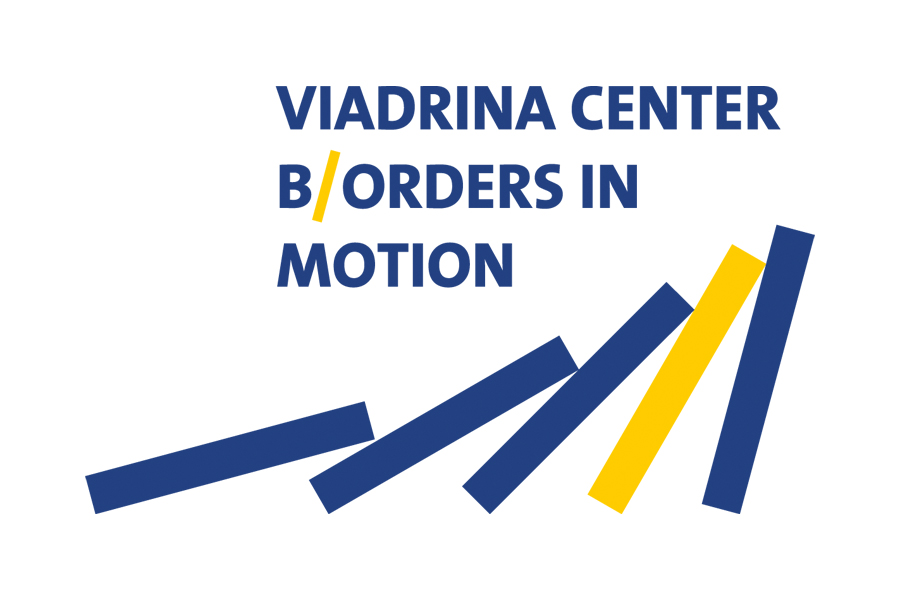Ambivalences of Europeanisation. Precarious orders of Europe in the past and present
TEXT
Project lead:
- Prof. Dr Timm Beichelt (Chair Holder, European Studies, EUV)
- Prof. Dr Claudia Weber (Professorship holder, European Contemporary History, EUV)
Project staff:
- Dr Susann Worschech (Research Associate, EUV)
- Dr Clara Frysztacka (Research Associate, EUV)
Funding institution:
Ministry of Science, Research and Culture of the State of Brandenburg (Seed Money funding 2016-2017)
Project duration:
2016 - 2017
Publications:
- Beichelt, Timm; Frysztacka, Clara Maddalena; Weber, Claudia; Worschech, Susann (Hg.): Ambivalenzen der Europäisierung. Beiträge zur Neukonzeptionalisierung der Geschichte und Gegenwart Europas, Stuttgart: Franz Steiner Verlag, 2021.
- Beichelt, Timm; Frysztacka, Clara; Weber, Claudia; Worschech, Susann. Ambivalences of Europeanization. Modernity and Europe in Perspective. IFES Working Paper Series 1/2019-I Frankfurt (Oder). Viadrina Institute for European Studies, European University Viadrina,
doi.org/10.11584/ifes.1. - Frysztacka, Clara: "Zeit-Schriften der Moderne. Zeitkonstruktion und temporale Selbstverortung in der polnischen Presse (1880-1914)", Berlin: De Gruyter, 2020.
- Weber, Claudia: "Der Pakt. Stalin, Hitler und die Geschichte einer mörderischen Allianz", München: C.H.Beck, 2019.
Project description:
The research project “Ambivalences of Europeanization” aims to discuss and incrementally develop a new, comprehensive concept of Europeanization. Directed by Timm Beichelt and Claudia Weber, we intend to reframe current understandings of “Europeanization”, still dominated by teleological and linear thinking, so as to better incorporate its historic, institutional, and symbolic connotations. Our perspective arises through the linkage of Europeanization to the concepts of modernity and modernization. While ambivalences – inherently contradictory consequences of both intentional and emergent processes – form a crucial aspect of modernization research, there has been no systematic reflection on the ambivalences of Europeanization. Our understanding of Europeanization highlights the simultaneity of ambivalences which we consider to be triggers for historically contingent processes of Europeanization since the 18th century. We argue that inasmuch as modernity is ambivalent in its core, so is Europeanization.
Linking Europeanization to modernization engenders two important analytical implications for the approach taken by the project team. First, an empirically open concept of Europeanization must place contingency, not teleology, at its core. Hence, understanding Europeanization requires a focus on the turning points of European histories – on events or situations in which the development of European integration and sociation could have tilted one way or another. The research group calls these moments tilting points. Second, a normatively open concept of Europeanization allows for conflict and contestation as constitutive elements of emerging social orders. An empirically and normatively open analysis of the ambivalences of Europeanization can be highlighted by four Cs: conflict, contestation, contingency, and crisis.
In our research agenda, we apply the four Cs in three arenas of ambivalence. (1) In the field of social ambivalence, the fractions of homogenization and differentiation inherent to societal Europeanization will be analyzed. (2) With regard to territorial ambivalence, the intertangled processes of integration and disintegration will receive attention. (3) A perspective on temporal ambivalence will focus on the contradictory relationship of acceleration(s) and tradition(s) in Europe.
The research project involves several researchers from different disciplines of Viadrina’s Faculty for Social and Cultural Studies and cooperates with scholars from leading international institutions.
